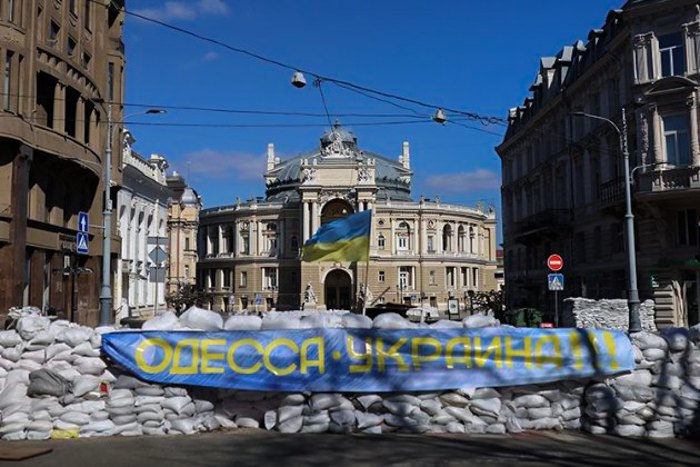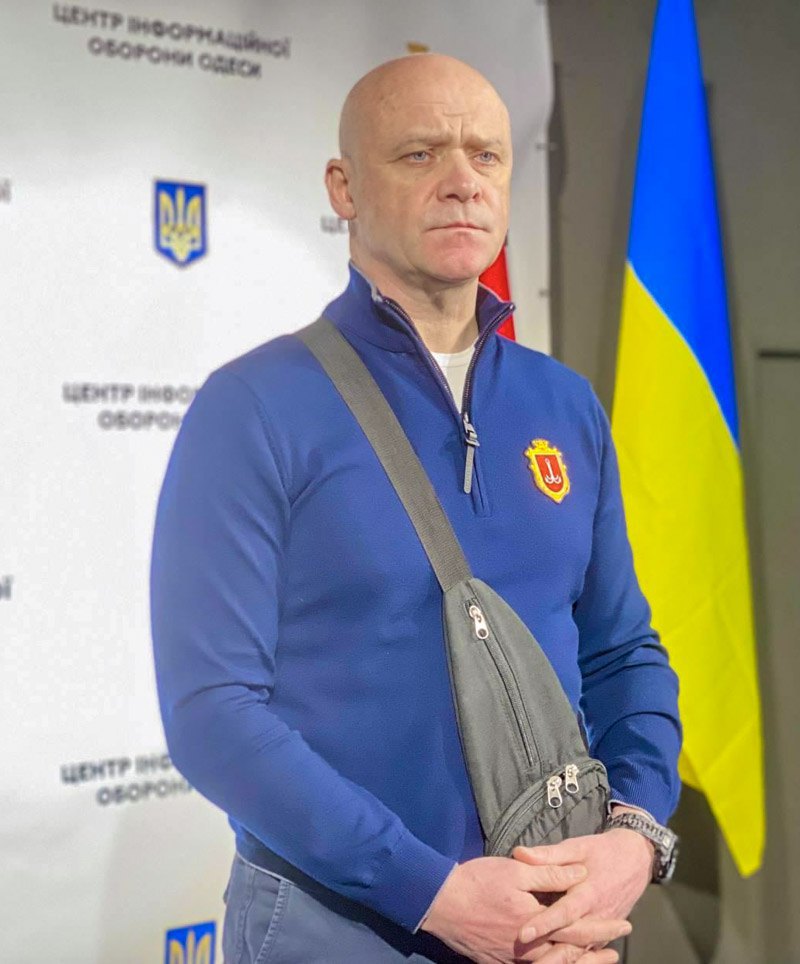"Until they finish the battle of Mariupol, they will not move in our direction"
On the eve of Easter Sunday a russian rocket aimed at an apartment building, killing three generations of one family. Until now, despite being sacred for russians Odesa was considered a relatively quiet city.
So, when the whole Orthodox world was waiting for the Holy Fire happening, Odesa was cynically fired at with cruise missiles, one of which hit a house, as a result the civilians were killed. A holiday did not stop the aggressor from striking us. The beasts firing this shot in Odesa have lost their human form long ago.
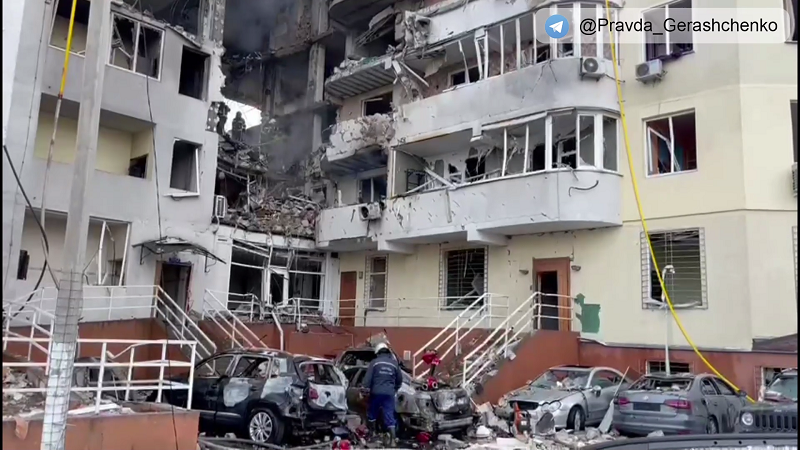
In fact the russians have declared the second phase of the war, which will focus on eastern and southern Ukraine. Obviously, Odesa is a serious goal for them. How prepared is the city for the defense today?
We are preparing from the first day, from the first shot at our city. From February 24, we are preparing to repel the invaders. Odesa is planning protection, we are building barricades, the line of defense. We stock up on food and medicine. Today, the people of Odesa have united to defend their city - every street, every house.
While preparing, have you taken some lessons on the defense of Kharkiv, Chernihiv, Mariupol. The latter, like Odesa, has quite difficult geographical position?
Yes, we are watching what is happening in other cities of our state, so we draw conclusions. On February 24 we were preparing to defend Odesa on the streets: building barricades, building Czech hedgehogs [anti-tank obstacle defense], fortifying houses, still today we see what else needs to be done - following the example of Kharkiv and other cities. We are preparing to defend our city on the approaches, we are building the line of defense, we are helping on the Mykolaiv-Voznesensk border, where fighting is going on to stop the enemy on the approaches.
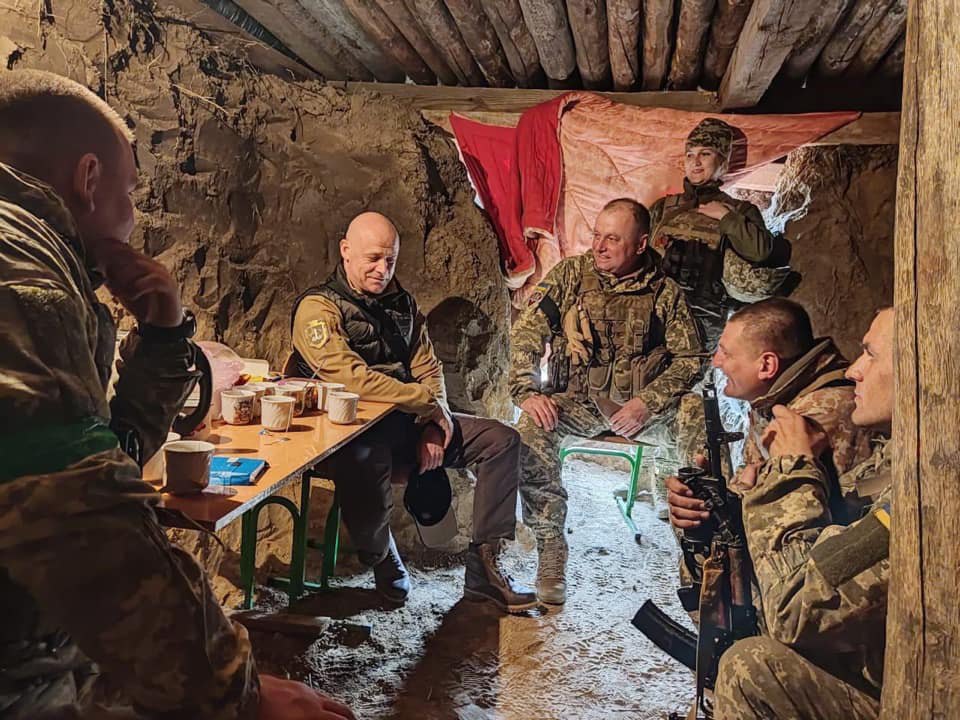
The reason I’ve mentioned geography is that Odesa is surrounded by the sea on one side, as far as I understand, all the city beaches are mined?
Yes. The beaches and the coast. Because the city has its own peculiarities. Unfortunately, there are enemy ships on the sea, there are many of them, they were preparing to land the troops. After the russian ship went where it had been told to, we are looking more calmly at the sea side, because the occupying fleet no longer appears near Odesa. We focused more on strengthening in the directions of Nikolaev, Voznesensk, Kherson.
And there is the proximity of Transnistria. The question is whether missiles can be fired from that area; whether their army, though small, will enter the battle against Ukraine.
It is small, but it is also a threat. This is not the threat that decides something tactically, as per the military. But they can threaten, they have weapons, albeit not the modern ones. Although the motivation of those servicemen is very low, we are doing everything possible to prevent this from happening. But the intensification of shootings in Transnistria and the explosions are also making the situation more tense.
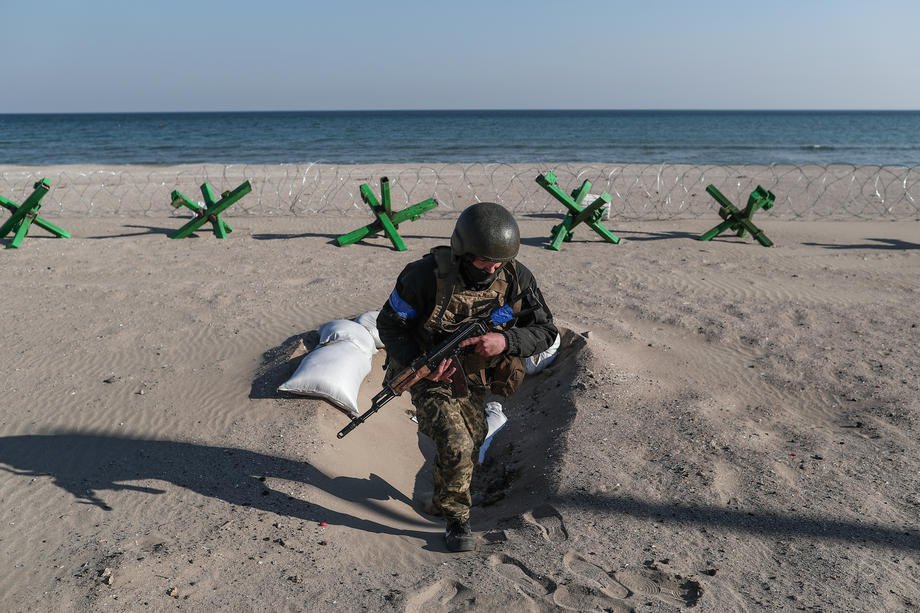
The road to Mykolaiv and Pokrovsk goes through the Khadzhibeyskyi Liman. This is a narrow point, a strategic route, the control of the city depends much on the control of it.
This is a really narrow route. We know and we are preparing, drawing conclusions. We know we need to pay attention to this place, and we are doing it. Let me go on without details.
In our interview, Andriy Biletsky, the founder and first commander of the Azov Regiment, suggested that there would be no major offensive to the east and south until the Mariupol issue was finally resolved. The reason is that 10% of all russian forces are concentrated in the Mariupol direction. But this is an assumption, and I want to ask what you think about it.
I agree that until they finish the battle of Mariupol, they will not move in our direction. We are proud of how the enemy is being held back in Mariupol today, it deserves everyone's respect. Because these are heroes who have proved that the aggressor and occupier have nothing compared to the motivation and spirit of our defenders.
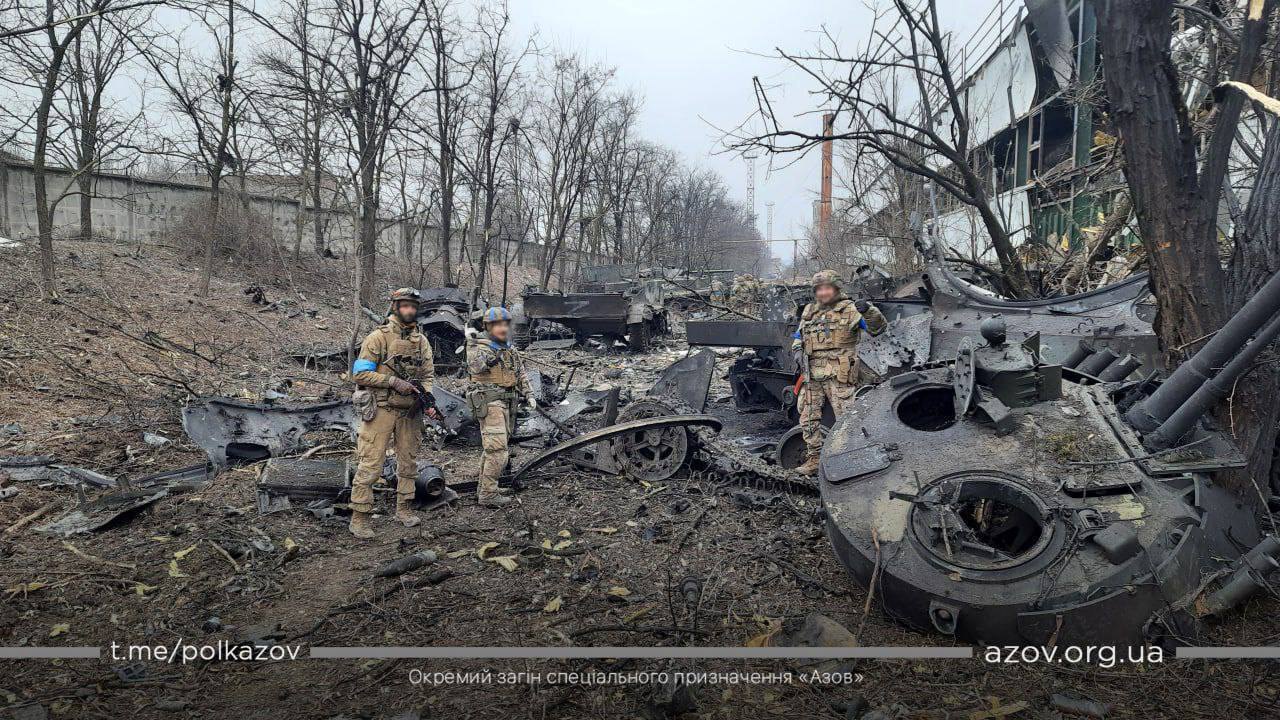
"We are Ukrainians! Odesa-speaking patriots of Ukraine. No less patriotic than Lviv, Ternopil, Ivano-Frankivsk and others "
Before the war, Odesa was considered a rather pro-Russian city. You mentioned that 90% of Odesa residents speak Russian, or - as you say - "Odesa" language. Kharkiv and Mariupol were also mostly Russian-speaking, but unfortunately this did not protect them.
All mass media are asking me about it, they say, Odesa is the pro-Russian city. Do you have an idea what pro-Russian sentiment is? I tell you, Odesa is a European city. We used to speak Italian more than other languages. The newspaper was even published in Italian. It happened this way that today the "Odesa" language dominates. But the talks about the pro-Russian sentiments began because Shukhevych and Bandera are considered heroes in Western Ukraine, and we know little about them. That's why we were told, "You don't respect them, so you're pro-Russian." But we are Ukrainians! If I can put it like this, we’re Odesa-speaking patriots of Ukraine. No less patriotic than Lviv, Ternopil, Ivano-Frankivsk and others.
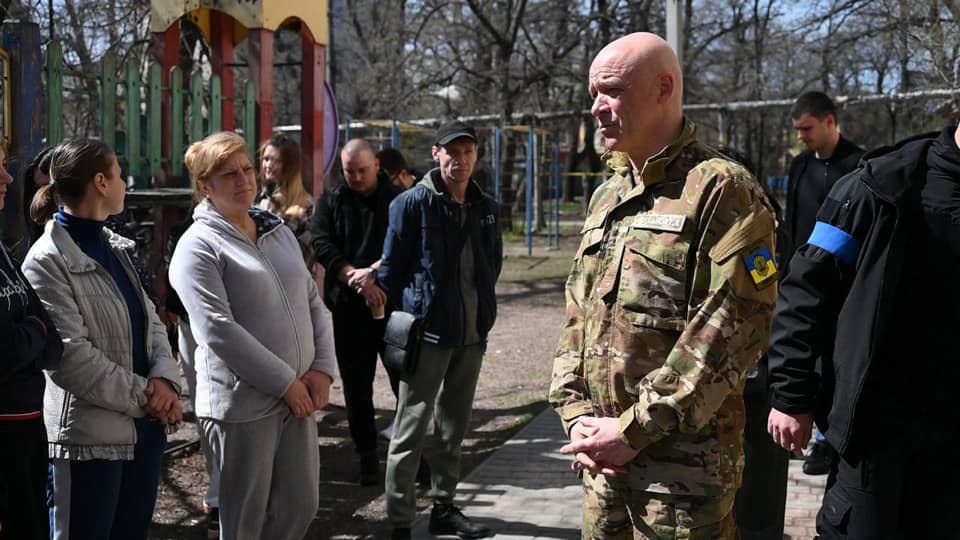
However, this attitude of russia towards Kharkiv and Mariupol surprised, do you agree?
Everything is clear to me. These aggressors, the occupiers, never considered us human, they believe that everything is theirs, the whole world is theirs. They are building an Eurasian state - from Vladivostok to Lisbon. It is already openly said. They see neither Ukraine nor Ukrainians. Look at the rhetoric in their media, TV shows, programs. Look at their aggression, what "brotherly people" can we talk about?
I have been in that house today [where the rocket hit], every day we try to fix it so the families can return to their apartments. And they say the missile landed at a military facility. Lies and provocation! I don't know who else in russia can take it. I’d like to bring them here, to Bucha, and see what they would say after that [speaks very emotionally].
They came to our land, Ukrainian land, to bomb our cities, villages, to kill civilians. Why, I would ask? Who asked them to come here? Let every citizen of russia ask oneself the question: why have I come here, whom to liberate and from whom? Because it's nonsense! Sick! I have run out of vocabulary to describe it somehow.
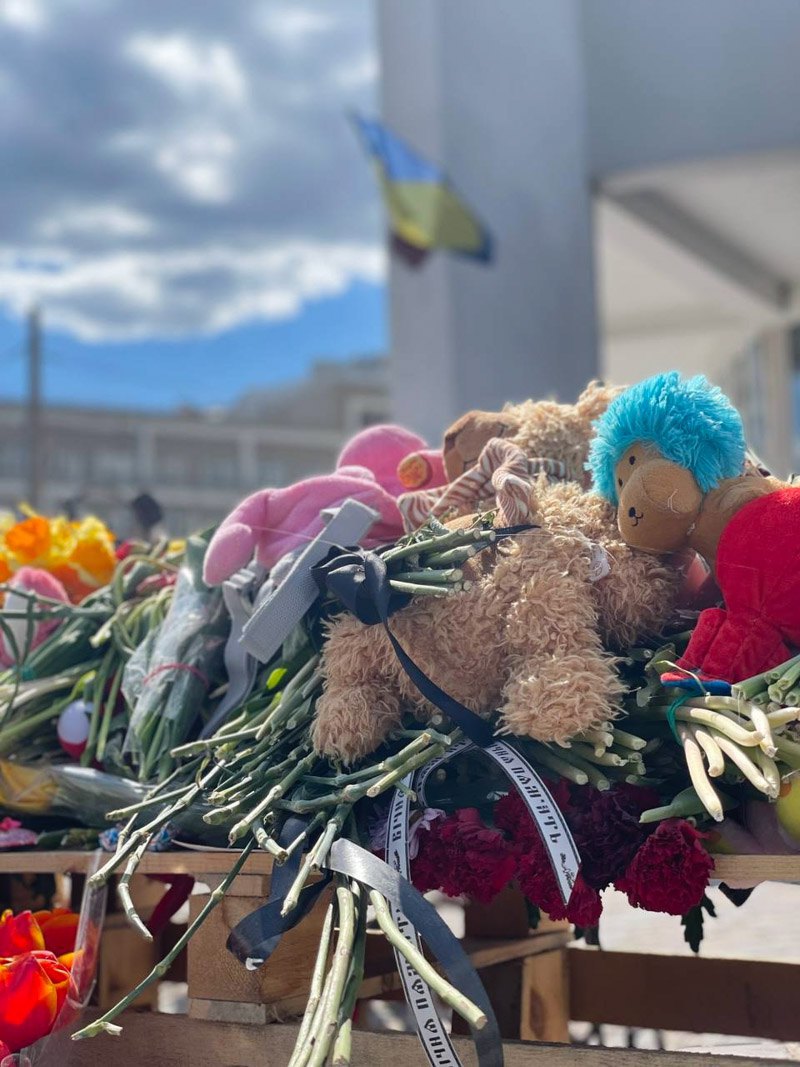
Many russians used to come to Odesa every summer. They had real estate here; treated it - literally - as a "summer house". I wonder what they have in mind?
I don't know what's on their minds. I will not provide the names, but there are russians who called their acquaintances here and apologized. There are those who have ceased all contact and dropped the connection. There are those who think that they are doing something "fair", helping someone. And there are just stubborn jerks who, press a button and launch a missile into an apartment building while preparing for the Orthodox holiday,. How can you talk to such people? In what language?
"It's too early to return to Odesa now: think about your children, think about safety"
What is the current mood in the city? How many people left, how many remained?
According to our estimates, about 200,000 Odesa residents left. These are mostly children, women. But a lot of people are returning now.
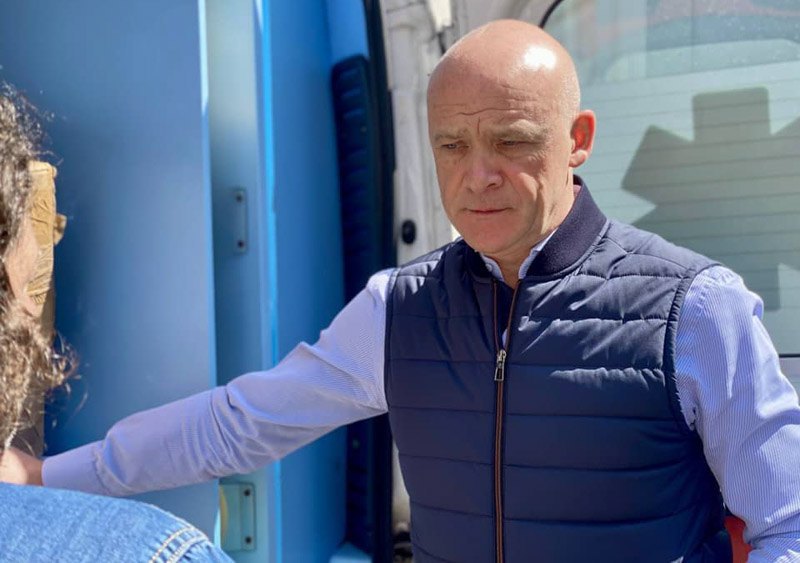
Is it safe to return? Because, for example, Vitali Klitschko asks the residents of Kyiv not to hurry. Is it safe to return to Odesa?
I think it's dangerous. Today [April 26 - SK] the rocket hit the bridge that connects Odesa with Zatoka, a resort town. In total today there have been 7 rockets in Odesa Oblast and related areas. And, unfortunately, shelling most probably will occur more often. Therefore, it is dangerous to return. Well, you know, summer, the sea, everyone wants to rest, missing their city, the atmosphere, so they return. But we say that it is dangerous to come back: think about your children, about safety.
Tell us a bit about volunteering. Odesa has always been known for its contradictions, interesting internal stories, movements, but now everyone is united and it doesn't matter whether people used to support Poroshenko or Zelensky, whether they were for Trukhanov or against Trukhanov - now they are a united front.
I am proud that the city humanitarian headquarters in Odesa is an example of cooperation of all political parties, public associations and public formations without exception.
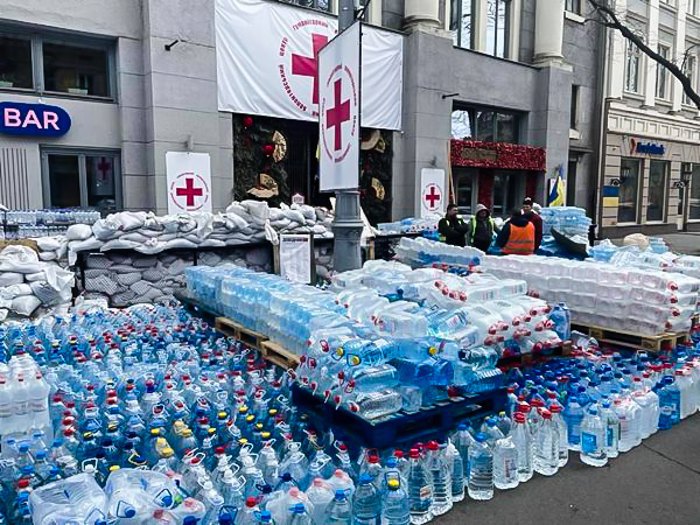
It is headed by my good friend Nika Viknyansky, who once supported “Golos” [a political party].
We all have united for our victory, to defend our city. We are preparing, as I said, we are making a strategic stockpile of food, medicine, and so on. Political and other edges are being erased - that is a fact.
Nika is very energetic, he has united many people.
Katya Nozhevnikova's, “Monsters Inc”, is also working with us for a medical direction. We all communicate, coordinate, and I like that everything works effectively.
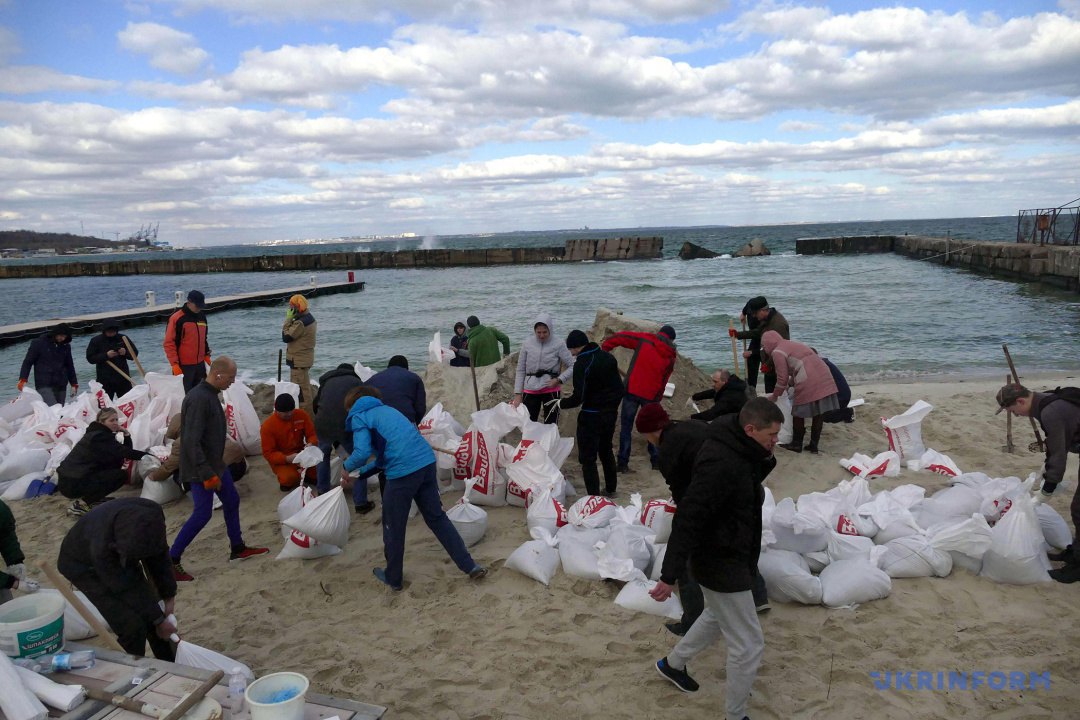
"All those who are guilty of "May 2" in Odesa are now performing on a talk-show in Moscow"
Still: what is happening in the political life of Odesa? Pro-Russian parties are banned, you reported that the faction of Opposition Platform — For Life [OPFL] in the Odesa city council was self-disbanded. Does this affect the work of the council? How possible is the case when the city government will not be able to make decisions in a democratic way due to the lack of votes?
As far as I know, the Verkhovna Rada of Ukraine has registered and already adopted in the first reading the two bills that answer this question. The ban on these [pro-Russian] political parties is one direction, the other is [the bill on the work of city councils], they will be supplemented by the quota of those parties that remain, or if the number of the deputies left is more than a half of the regular staff, they will work that way, except for those deputies who will be withdrawn from the city council.
Since martial law is now acting…
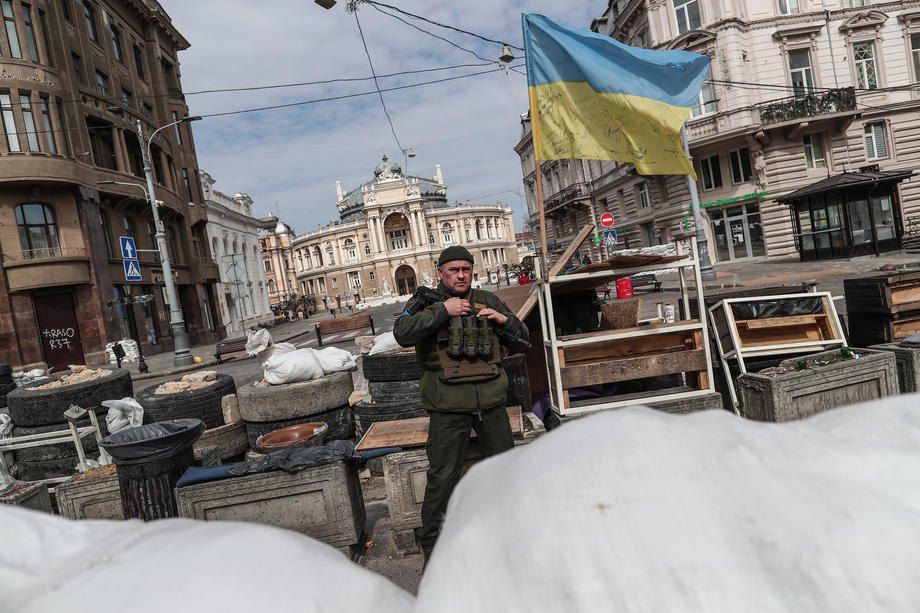
Elections cannot be held.
I'm not talking about elections. I am saying that today I have more power as the mayor and the executive committee. We solve the issues by making decisions by the executive committee and myself as the mayor.
I think that after the war, these conditionally pro-Russian sentiments of those who sympathize to the OPFL, the conditional Sharia, will come to naught at the level of national political forces as well as at the level of local councils.
I wish that were the case. But we have to think and listen. For example, to the mayors who talk about some peculiarities in their Oblasts. Instead of circulating instructions. Because Ukraine is diverse. And this is our beauty and strength. And this must be taken into account.
What do you mean? There is a very vocal example of the monument to Zhukov in Kharkiv. Igor Terekhov, who now behaves heroically as the mayor of the city in such a difficult time, had zealously defended that monument before the war. And now the monument has simply been removed, and I don’t think there will be many people in Kharkiv who oppose this decision.
So you need to draw conclusions and understand that everything needs to be done carefully and explain why it is done. Not just because someone just felt like destroying something and therefore caused some protests from another part of the community.
Today, everyone sees what is happening, there is a reassessment of people's values, and we have to act not in the manner of "we decided and wanted this way", but through the levers of the city authorities: a referendum, a public hearing. Because actions cause counter-actions. And such issues need to be addressed. And we are doing it now in Odesa. When you go this way, it does not cause any opposition.
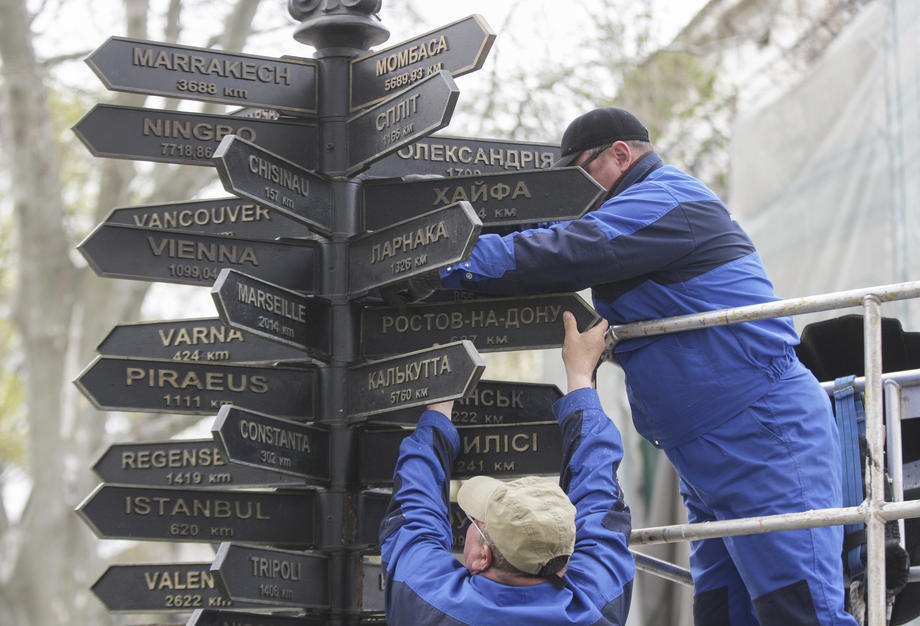
You help the mayors of the affected cities, they help you. Can you tell me more about this?
Indeed, we have cooperation, we have contacts with those cities where there are fierce battles. I am talking to the mayor of Kharkiv, asking how we can help. When they needed medicine, and the corresponding truck was heading to us, I asked to re-route it to Kharkiv.
On the eve of the great holiday of Easter, we baked 20,000 Easter cakes and sent them by train to Kharkiv to have a holiday there as well. When the zoo was bombed in Kharkiv, we took a lion and a lioness to Odesa. They have already settled down, becoming "residents of Odesa".
The same with Mykolaiv. You know there is a problem with the water supply. We sent our municipal equipment, 5 water trucks to provide people in Mykolaiv with water. They have been working there for the second week.
We also helped Chernihiv, Vlad Atroshenko [the mayor]. We are doing everything today for the sake of our victory, we are giving a hand to those who need help.
… You see, I started my political career as mayor in 2015. I was called a "separatist" all over Ukraine, and in 2020 I already became a "nationalist." In fact, I love my city, where I was born, I love my country, that's all.
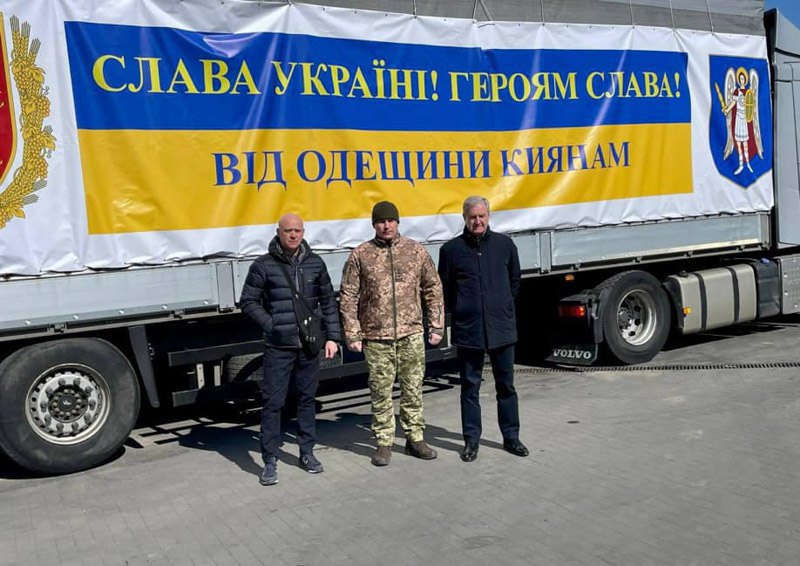
To many who do not know you, it seems that you have now undergone a personal transformation in this context. Like Alexander Vilkul, Igor Terekhov, others who, like you, were considered sympathizers of russia.
I will not name those who went to the election and hung posters in Kyiv and other Ukrainian cities saying "Ukraine is multilingual." The posters had been hung for two months, the election passed, some of their goals were achieved, then the posters disappeared and everything was forgotten. Those who evaluated me, Terekhov, and other mayors according to criteria that only they understood, need to look a little wider. Today I am told: "Oh, we are so glad that you appeared to be like this ..." But you look at my past!
When did I surrender Odesa? In front of whom? To whom did I retreat? This is my city, I was born in it. My country where I was born. If I speak more "Odesa language" today, it does not mean that I am a different person.
Well, I've known you for a long time, so I have no doubt in your sincerity.
Here is an example.
Ilya Kiva once came to Odesa, it was the eve of Vyshyvanka Day [an international holiday that aims to preserve the original folk traditions of creating and wearing ethnic embroidered Ukrainian clothes called vyshyvanka]. We met with him, and in the mayor's office he invited me to the holiday in such a sincere Ukrainian way: "Let’s put on embroidered shirts, let's go and sing."
I explained that I would have official meetings in the morning and as the mayor I have to follow the dress code. As soon as I finish the affairs I would gladly walk around the city in an embroidered shirt.
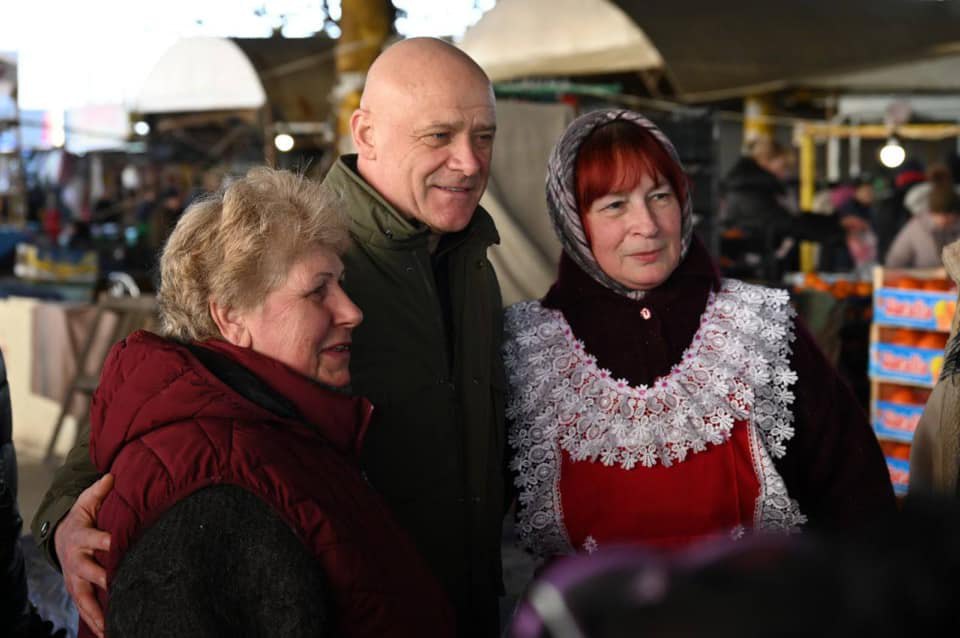
Kiva complained that he did not have an embroidered shirt, and the shops were already closed since he arrived late. “No problem, I will lend you some of my own. What color would you like, short or long sleeves?”, - I said. He was very surprised that I had them. My own and even several.
To be honest, I didn't quite understand the surprise. Beyond that.
So Kiva put on an embroidered shirt and walked around Odesa.
Where is he now, that "patriot"? He ran around the city, talked about values! Where is he and where is Trukhanov? Maybe we are using wrong criteria and labeling here?
I absolutely agree.
Yet. We need to talk about May 2 [clashes between pro-Maidan and anti-Maidan groups in 2014 which resulted in 48 deaths]. In Russian propaganda, this story has acquired some mystical significance. Of course, Russian propaganda is not something that can be seriously discussed, but they use it as a weapon: they claim that "Bandera followings killed people in Odesa" and "justify" their possible aggression against Odesa with the revenge for May 2.
I have already said in the media, addressing the russian leader, in response to his threats to punish those who committed "May 2": "Start with yourself, you do not need to go to Ukraine and punish someone. All those who are guilty of "May 2" in Odesa, perform on a talk show in Moscow. Those who financed with your money "Kulikovo field" [a pro-Russian rally], which raised the tricolor flag [russian flag]; all these people are currently in the Crimea, some of them are in Moscow, some in other cities, all hiding. Invite them, please, and ask what they did, what provocations they arranged and how 48 people died”. There were 14 tents on Kulikovo Field [in 2014] with flags of other countries, no one beat them, there was no Special Purpose Mobile Unit, because we are patient and tolerant. And not like in Moscow: try to raise any flag there: three seconds - and you’ll be behind bars.
